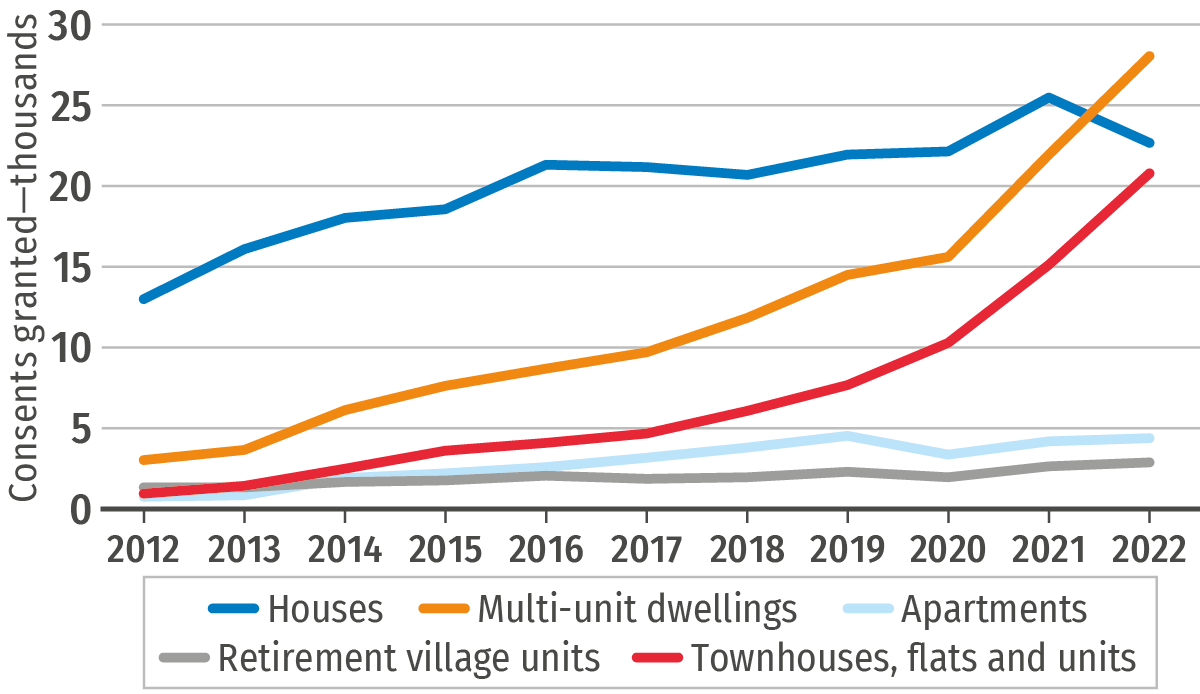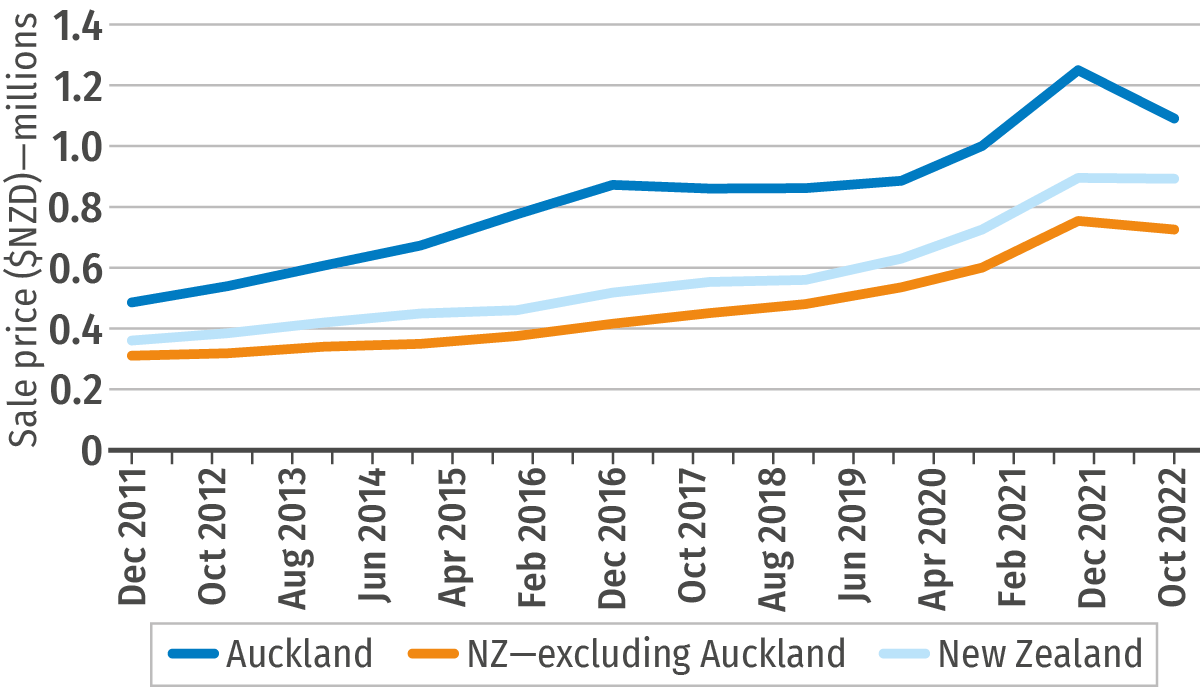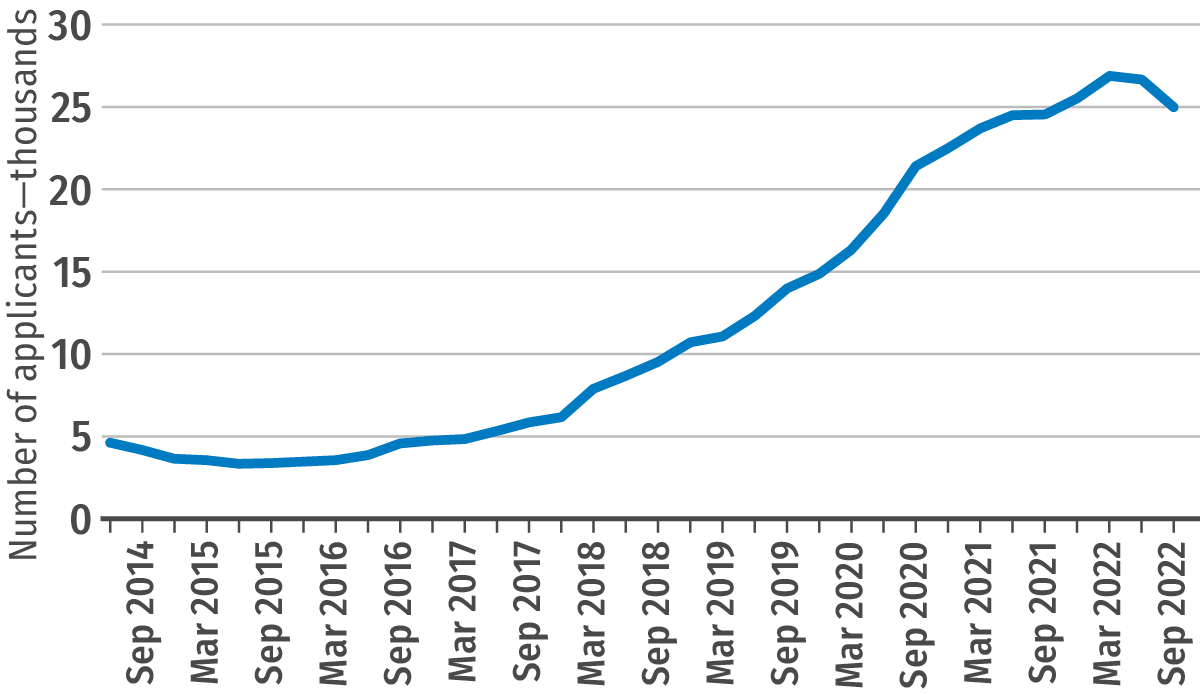You are here
Housing
In response to the sheer scale of housing challenges facing our nation, a lot of activity, energy and resources are being expended to try and address issues across the housing continuum in New Zealand. In this year’s report, the results are varied. More houses are being consented across the country: in 2022 the number of dwelling consents was nominally far more than required to keep up with population growth (due to the minimal population growth); the Public Housing register declined for at least two quarters of 2022; house prices declined (which is perhaps good news for first-home buyers, more of whom may be able to enter the market, although the reason for the house price decline—rising interest rates—increases barriers to market entry); and there continued to be a gradual increase in active tenancy bonds in the rental market, a proxy for the number of households who have been able to find rental accommodation.
Consents for new dwellings by dwelling type—New Zealand, year ending September—2012–2022
Looking closer at this year’s findings there are some very challenging areas to further investigate; for example, the rental market remains extremely tight. Across the country, rents have steadily increased, most notably in the lower North Island and across the South Island. Additionally, average household debt has increased again this year, directly related to more housing plus consumer and credit card spending from households. And the relatively small population growth figure for 2022 raises more questions around where this nominal (paper) surplus of houses might be located around the country.
Median house sale price—2011–2022 ($)
In the end, housing challenges remain mammoth. From a policy perspective and in an election year, there needs to be an emphasis on enabling legislation and effective policy that will support adequate housing and not hinder it. Additionally, there has been a lot of energy spent on reforming tenancy laws recently. With the rental market being so tight and expensive, what political parties offer in terms of housing and rental policy and ideas must be monitored closely. The Salvation Army has supported many of the Government’s recent reforms around tenancy laws, urban development and the sharper end of the housing continuum—homelessness and emergency, transitional and social housing. Still, greater innovation, more time, better use of inclusionary housing policies and increased partnerships between the Government and community housing sector are just some of the critical factors needed, especially in an election year, to try and address these massive housing obstacles. The Salvation Army’s focus continues to be on poorer New Zealanders and many of them sit in this sharper end of the continuum. Effective policy and law are one approach to addressing these housing challenges. But more help and courage is urgently needed from private developers, funders, local councils and local communities to help address
these huge issues.
Social Housing Register—2014–2022
Sections: Home | Introduction | Children & Youth | Work and Incomes | Housing | Crime and Punishment | Social Hazards | Māori Wellbeing
Data: Interactive Dashboard
Download State of the Nation: Full report | Summary document



